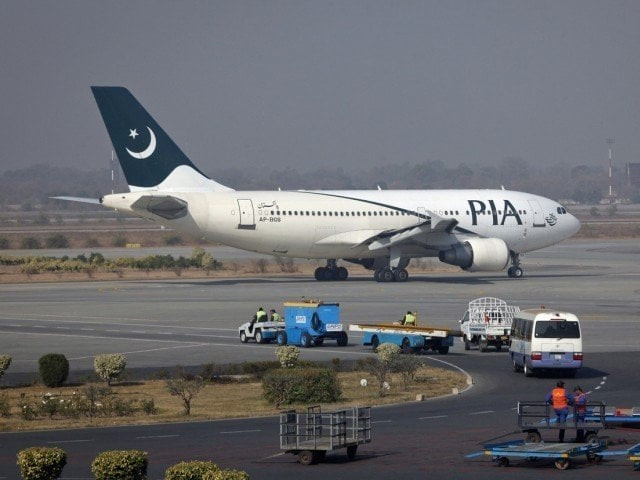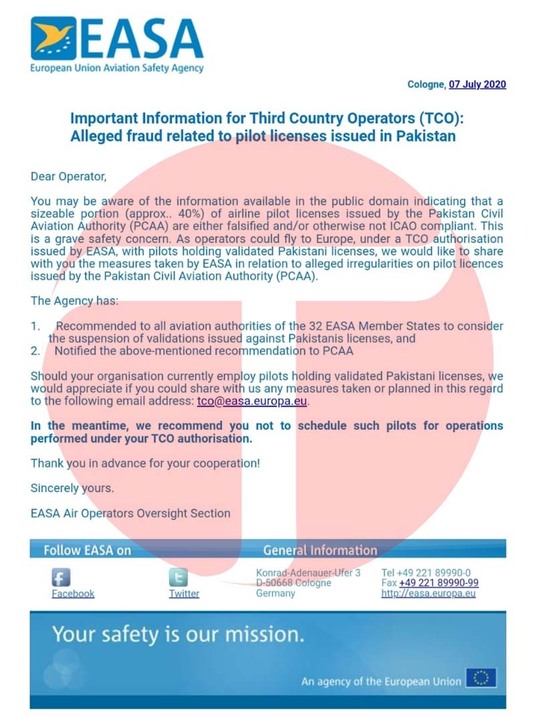EASA bars Pakistani pilots from flying
EU regulator says 40% of pilot licences issued by CAA are either falsified or not compliant with ICAO

The European Union Aviation Safety Agency (EASA) has barred its 32 member states from allowing Pakistani-licensed pilots from flying aircraft, following reports that some of pilot licences issued by the Pakistani authorities were either “falsified or not compliant with the global regulator.
Sources told The Express Tribune that the EASA issued a letter on Wednesday to the airlines operators in the member countries, asking them to suspend the validations issued to pilots by Pakistan Civil Aviation Authority (PCAA).
According to the letter, a copy of which is available with The Express Tribune, the decision has been taken after 262 Pakistani pilots were grounded, whose licences the Aviation Minister Ghulam Sarwar Khan had termed “dubious”.
The move follows decision by the EASA to temporarily suspend PIA’s authorisation to operate to the EU member states for a period of 6 months effective July 1.
"Approximately 40 per cent of the airline pilot licenses issued by PCAA are either falsified or otherwise not ICAO [International Civil Aviation Organization] compliant," read the letter, describing the situation as a "grave safety concern".
The agency also directed its member states to provide details of the measures taken with regards to the pilots holding Pakistani licenses.
The aviation experts termed the development alarming for the future of Pakistani pilots. They said the credentials of the pilots should be thoroughly scrutinised and all necessary steps be taken to restore the confidence in the Pakistan airlines internationally.
Earlier in the day, the federal cabinet approved the dismissal of 28 commercial pilots of 262 whose licences were found dubious after an inquiry.




















COMMENTS
Comments are moderated and generally will be posted if they are on-topic and not abusive.
For more information, please see our Comments FAQ